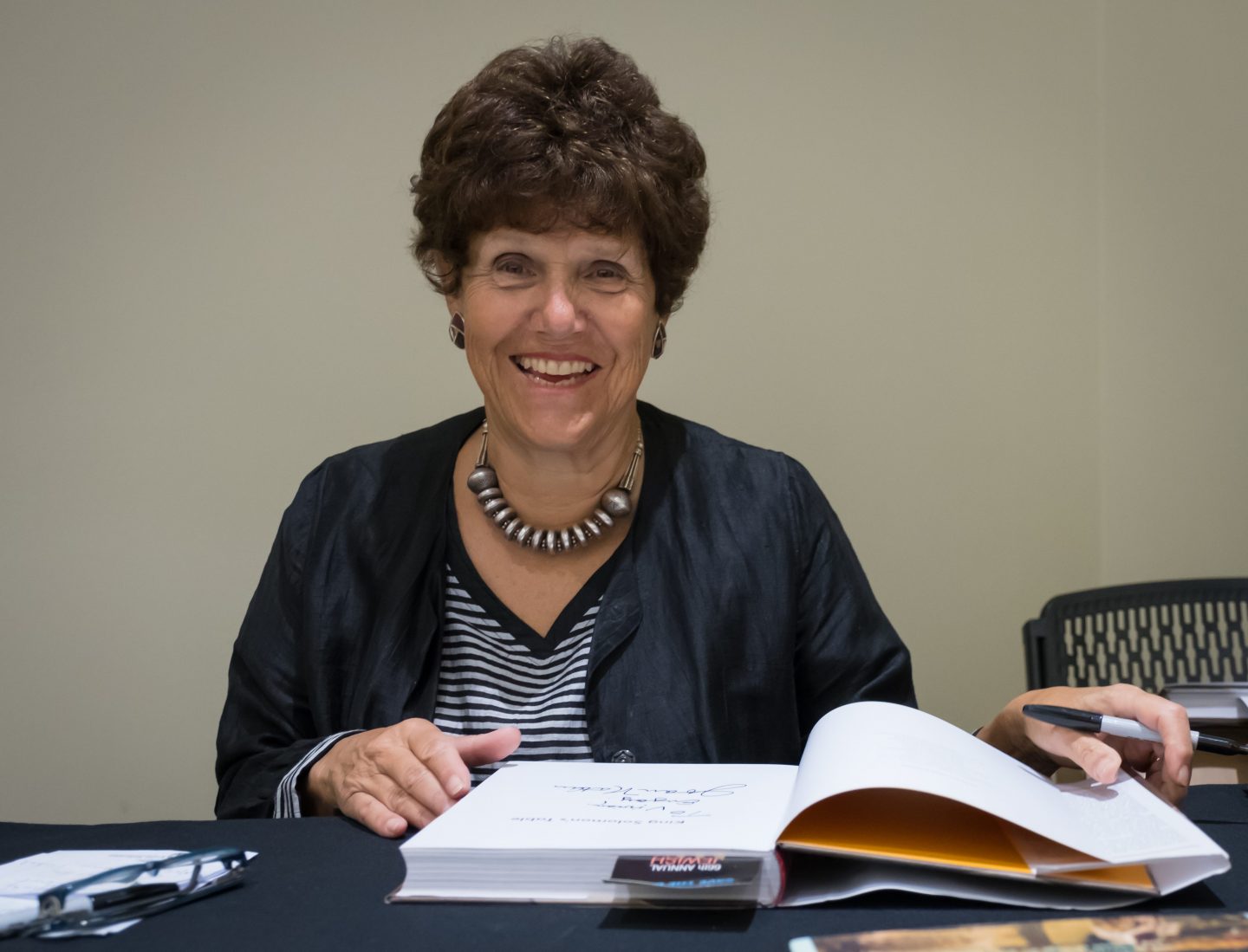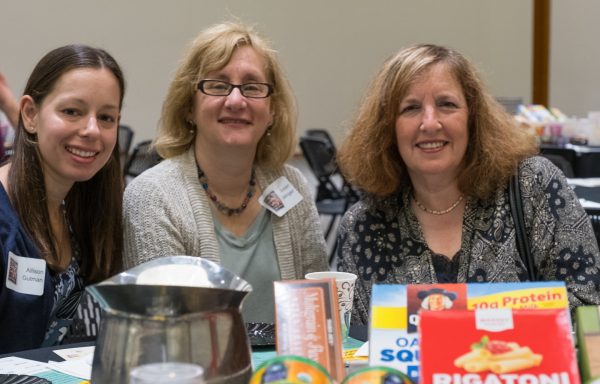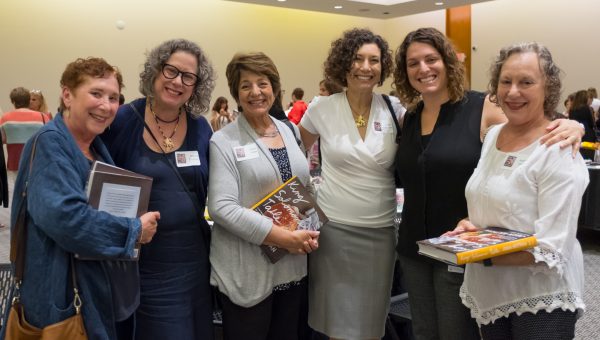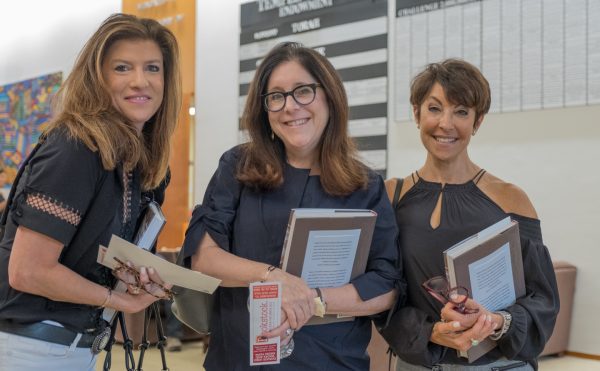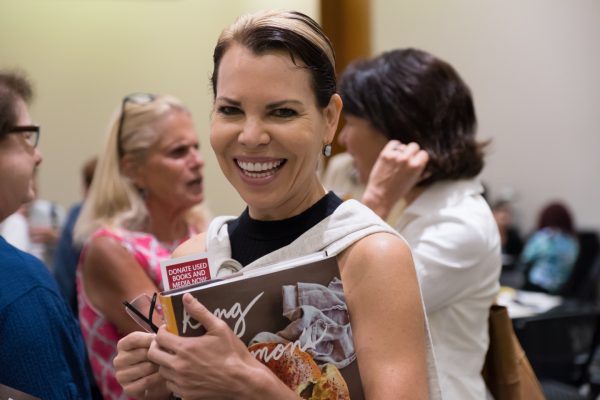A Feast from King Solomon’s Table
By Vivian Henoch, Editor myJewishDetroit
August 31, 2017
What happens when Joan Nathan, celebrated author known in culinary circles as the “Queen of Jewish Cooking,” meets Federation’s Women’s Philanthropy for brunch? By no means is it the usual kind of kuchen and coffe klatch. On Monday, August 28, more than 200 women gathered to talk food with Joan at a Federation 2017 Campaign Event in partnership with Temple Beth El and Hazon Detroit.
When Joan Nathan talks food, she’s all over the place. Literally. Joan is a James Beard Award-winning cookbook writer with 11 books under her belt. A U of M. alumna, encyclopedic in her knowledge of Jewish history, ancient trade routes, commerce and produce, dietary tradition and Jewish migratory patterns from Biblical times through the ages, Joan has traveled to more than 30 countries – from India to France, from Italy to Mexico, from El Salvador to Israel and,of course, throughout North America – to amass the bounty of her latest book, King Solomon’s Table: A Culinary Exploration of Jewish Cooking from Around the World, released by Alfred P. Knopf in April 2017.
Consider the bagel
So, what makes Jewish food uniquely Jewish? According to Joan, we might consider the bagel. In the introductory pages of her book, she explains, “My favorite way to picture Jewish food is as that beloved Jewish staple, the bagel. A mass of flour, water, salt and yeast is combined to form a dough; and so too Jewish cuisine has been created, using ingredients and techniques local to its people. As the dough is rolled and stretched, so the people, and their cuisine, begin to spread. New ideas, new foods and new recipes are picked up along the way.”
Joan has a story in every pot, uncovered in thousands of kitchens she has visited over the years. Previous to her appearance at the Women’s Philanthropy Event, Joan Nathan delighted her audience at the Second Annual Michigan Food Festival hosted by Hazon Detroit at the Eastern Market. There she prepared a dish of Babylonian (Iraqi) origin called Azerbaijani kukusa – a herb-infused frittata she described as “the perfect wandering comfort food.”
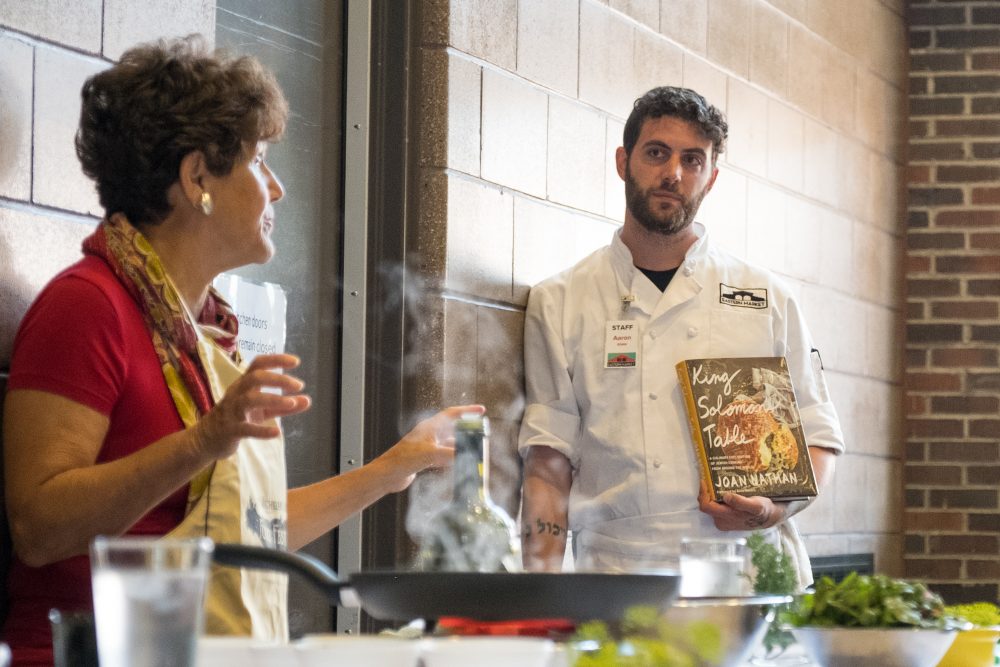
So, what makes food Jewish?
As Joan explains, the Jewish foods that hold us together as a people have three distinctions. First, they derive from the Jewish dietary laws. “Even if you do not observe the laws of kashrut, they are in the back of your mind,” she says. “Just as are the music, the prayer, the laws of Judaism, the whole gestalt. It’s all is in our DNA.”
“Second, is our obsession with food. Even in ancient times, Jews were obsessed with the quality of the food they consumed. Ancient Jews were grain merchants, cattle dealers, wine makers, bakers. Our tables always have been central to family, celebration, religious observance and community. We are obsessed with ingredients and care how things are prepared and that obsession is carried from generation to generation.”
And third, Jewish food is adaptable – eclectic and local. “Jews always have adapted food to the manner and where they have lived. Judaism is international and Jewish restaurants are now international as well,” says Joan, citing two notable examples: Balagan (Hebrew slang for Hullabaloo) in Paris and Mishiguene (Meshuggah) in Buenos Aires.
Pass the plates
In closing, Joan’s parting message to her audience is simple: “Pass down our traditions in the kitchen,” she advises. “You can’t go for carry-out sushi all the time, and expect our children to keep these traditions. I feel it’s our duty as parents – as mothers, fathers and grandparents – to tell our stories through the food we eat, because these food traditions are our life.”
Hungry to learn more? For more recipes from of King Solomon’s Table, go to joannathan.com.

